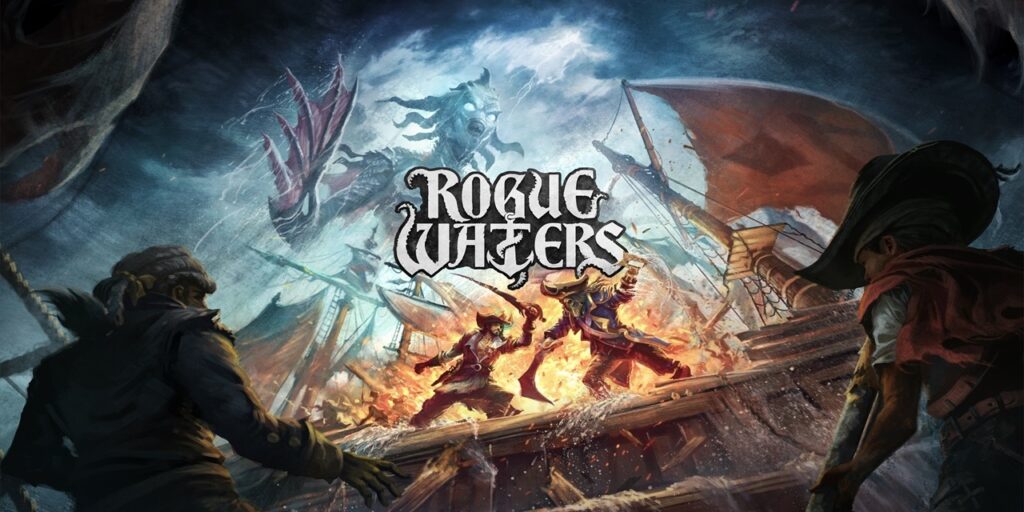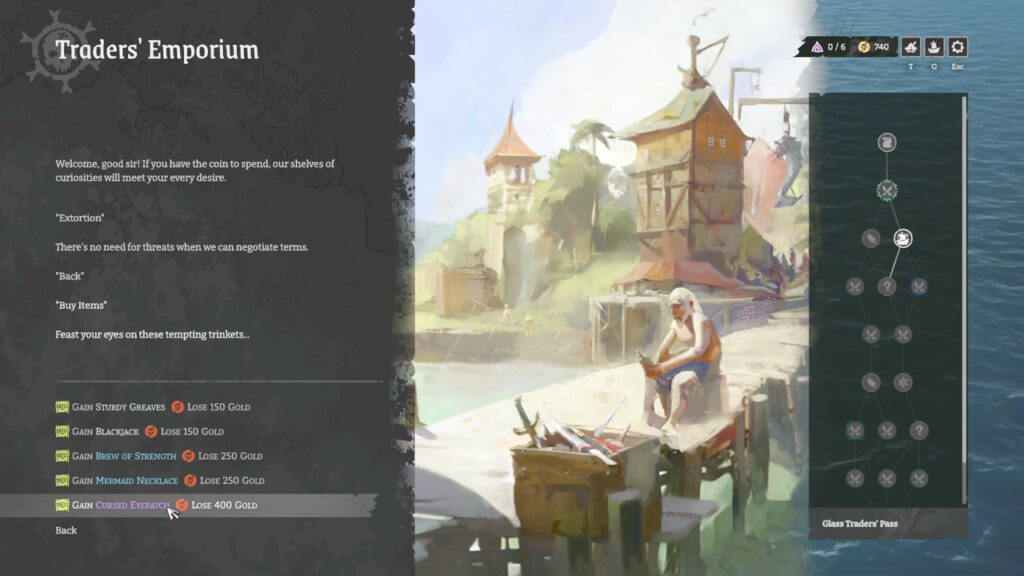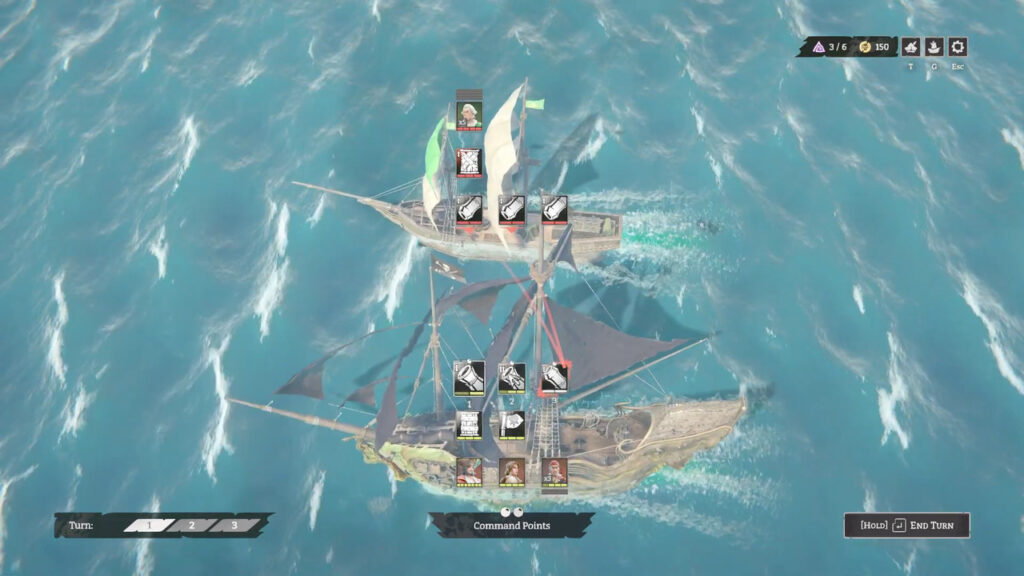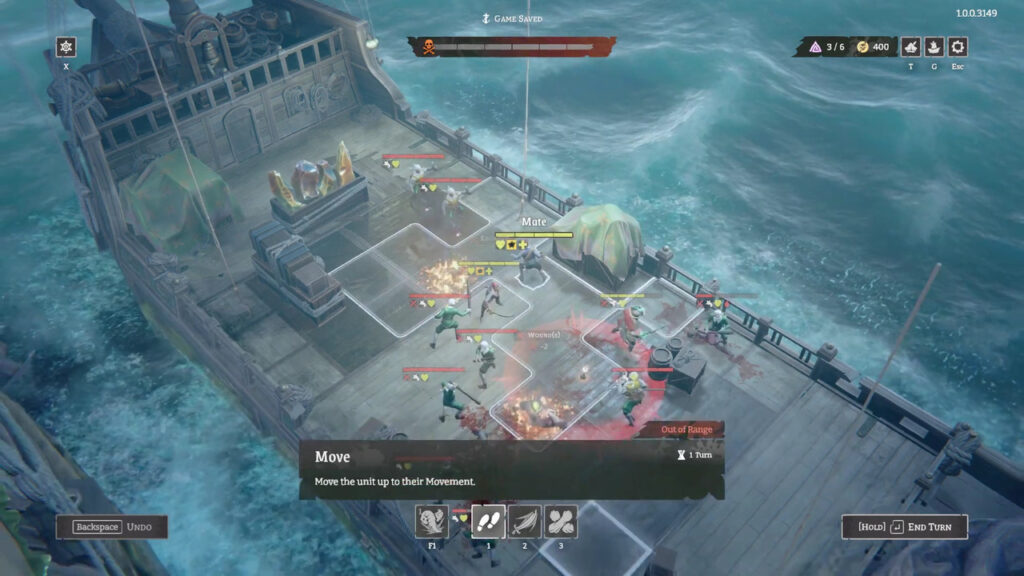
Developer: Ice Code Games
Publisher: Tripwire Interactive
Platform: PC
Tested on: PC
Rogue Waters – Review
When it comes to reviewing video games about pirates, there is an unwritten rule: you need to work in at least a couple of pirate-related expressions, or even worse, puns. So forgive us in advance, dear reader, and don’t make us walk the plank. It’s right there in the pirate code. With the aid of our trusty treasure map, we’ve dug up Rogue Waters, the subject of today’s review. Is it arrr-right or should you just spend your hard-earned doubloons on another bottle of rum?
Story
Given the procedurally generated nature of Rogue Waters’ adventures, there isn’t necessarily a set story here, at least not beyond the game’s overarching premise. That premise is all about vengeance, as players step into the brogues (those are pirate boots, for all you landlubbers) of Captain Cutter, a pirate with a magical gemstone embedded into his eye. Cutter seeks revenge against his former captain, the legendary pirate Blackbone. Revenge is a dish best served cold, so Cutter has quite a bit of time ahead of him, as he navigates across treacherous waters, seeking out shipmates and deckhands to form a new pirate crew. It’s definitely not the most original or engaging story, but it works nicely as a backdrop to give context to Rogue Waters’ gameplay. The narrative is delivered through static scenes in between battles, detailing random events, interactions with merchants, and the like.
Graphics
Just like its narrative, Rogue Waters falls flat when it comes to its visual presentation. The pirate setting combined with supernatural elements could have lent itself perfectly to some striking, outlandish designs, but the game doesn’t capitalize on this opportunity. Instead, everything looks as generic as you’d expect from a pirate-themed game. The lack of a unique aesthetic identity somewhat hurts the overall visual appeal. Rogue Waters is not a bad-looking game by any means, but nothing here stands out either.
Sound
The soundscape continues the feeling of genericness, with a soundtrack that would feel at home in a theme park ride about pirates. The bland sound effects and uninspired but loud voice acting don’t do the game any favors either. Rogue Waters’ audio is functional and does what it needs to do, but that’s about all you can expect here.
Gameplay
The ‘rogue’ in the title hints at the Rogue Waters’ nature as a roguelite game. These days, roguelite is a blanket term that is applied to a variety of genres. In the case of Rogue Waters, that genre is turn-based tactical combat. We’ve seen the combination before, in games like Darkest Dungeon, but Rogue Waters infuses some simple but fresh ideas that make the game stand out from its competitors. The most striking twist is that combat is divided into two distinct phases. You start out by attacking the ship of your enemy, while simultaneously defending your own ship, over the course of three turns. Weak spots on an enemy vessel can be targeted, and you’ll also see which parts of your ship are being targeted by enemy cannons. There is quite a bit of strategy involved here. Do you try to take out the enemy cannons before they hit you? Or are you better off destroying their sails so that they become less mobile? Any damage your ship takes will be carried over to subsequent battles, so you’ll need to be cautious and consider the long run. Fortunately, you’ll be able to repair and even upgrade your ship when you return to your home base.
If you make it past the naval combat phase, you’ll move onto Rogue Waters’ second and arguably more involved combat phase. Your crew will board the opposing vessel, and you’ll engage with the opposing buccaneers in direct combat. Positioning is incredibly important here as flanking enemies and taking advantage of ranged weapons or stage hazards can make or break your naval assault. The game doesn’t shy away from fantasy elements here, with the ultimate tool at your disposal being a Kraken. Rogue Waters also lets you push enemies across the grid-based maps, opening up even more strategies. It’s satisfying to create chain reactions of sorts by setting everything up in such a way that you can prevent multiple things from happening. Of course, your opponent can take advantage of those same mechanics. It’s a good thing that you’re given the opportunity to deploy your crew as you wish before you start brawling. Battles don’t just take place across ship decks either, but also on tropical islands and fortresses. These further improve tactical variety by adding more environmental obstacles to consider.
Upon successful completion of several linked-together battles, you’re taken back to your base, where you can spend your hard-earned gold on recruiting new crew members or ship upgrades. Likewise, if you suffer a humiliating defeat, you can set out from the base again, and after licking your wounds, another attempt to overcome an adventure can be made. Win or lose, each run will earn you precious experience which can be used to unlock permanent upgrades for Cutter, making subsequent voyages easier. In this regard, Rogue Waters follows the roguelite playbook to a tee. The core strength of the game isn’t necessarily in its structure but in its turn-based tactical gameplay. However, Rogue Waters still utilizes its roguelite elements to ensure replayability. This all adds up to a game that provides plenty of strategic depth and tactical variety, built around a solid combat core. With varying difficulty levels that give you higher rewards if you take higher risks, and each adventure being procedurally generated, there are plenty of reasons to keep setting out to the seven seas. The €29.99 booty required to board this ship is well worth it.
Conclusion
Don’t be fooled by Rogue Waters’ initial appearance. While the story and audiovisual presentation are as generic as they come when it comes to pirate-themed games, Rogue Waters impresses through its solid two-phase combat system and deep, engaging combat overall. The procedurally generated nature of the game means no two runs will play out exactly the same, meaning you’ll find yourself returning to Rogue Waters whenever you hear the call of the sea.









No Comments